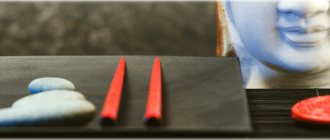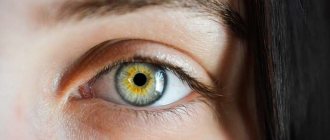The laws of human life are not something dry, theoretical and unnecessary, as it seems at first glance. It is enough to try to put them into practice just once, and it immediately becomes clear that they are connected with our everyday life.
This book studies the law of time, which was described by Vedic knowledge more than 5 thousand years ago. It is much deeper than the laws of the state or, say, physics. We are talking about the laws of our existence. Understanding and observing them allows you to get rid of many life difficulties, chronic and intractable diseases, disappointments and failures. You will gain the ability to correctly assess the situation and make the right decisions, and you will always be able to make the right life choices. You will no longer have to be led by events, because you will have the strength to change a lot in your life.
The material in the book is based on the author’s lectures on medicine and psychology, given to a wide audience; it is used every day in practical help to those who need it, and is designed to provide real support to a person seeking happiness.
Summary of Torsunov's lecture “What is time. Daily regime"
The time indicated in the table and text is not the time according to a clock, verified with Moscow time zone time, but astronomical time, where midnight is “12 o’clock at night” in the table - the middle of the night is the midpoint between the moments of sunset and sunrise, and “12 hours of the day" in the table is true noon - the midpoint between sunrise and sunset in your area.
(read the article about the Vedic daily routine on the self-knowledge website. There is also about the diet, and many other equally interesting and informative articles that can be discussed or supplemented on the self-knowledge forum)
For example, “3 am” for the coordinates of the center of St. Petersburg on April 3, 2009 means 5:02 on the clock. Sunset 20:47, sunrise 7:19 - meaning midnight at 2:02, noon at 14:02
Sunrise and sunset can be found on Yandex Weather.
Preface
While studying the possibilities of making the lives of my patients happier, I came to the conclusion that the laws of life and their connection with a person’s destiny are a reality. Therefore, I would like to immediately emphasize that most of the information in this book describes laws that affect our life and destiny.
The laws of human life are not something dry, theoretical and unnecessary, as it seems at first glance. It is enough to try to put them into practice just once, and it immediately becomes clear that they are connected with our everyday life.
These forces always act, regardless of whether a person believes in them or not. Therefore, I urge you, dear reader, to try to evaluate how practical and useful knowledge about the laws of a happy life is.
I always wanted to find knowledge that would answer all my questions. For a long time I also thought that only modern science would help me. But one day life confronted me with the opportunity to deeply and in detail study this not only ancient, but, as it turned out, very practical knowledge with the wise name of the Vedas. The word “Veda” itself is translated from Sanskrit into Russian as “knowledge”.
All material presented for your consideration is based on this ancient science. In practical issues related to health and nutrition, in addition to the classical views generally accepted in Ayurveda (Vedic medicine), I also publish my own methods. This approach makes it possible to make the material practical and useful. All the author's methods presented in the book are based on the postulates of the Vedas and have been widely tested in practice.
The materials published in the book are intended for only one purpose - to help you, dear reader, become happier. The Vedas claim that happiness exists, and in order to become happier, you must first change yourself.
Vedic knowledge is not outdated, it is alive and practical. I have seen (and see) how it works in the lives of my patients, how it works in my life. Deep confidence in this prompted me to begin writing this book.
Brief summary of Torsunov’s lecture “Day regimen”
This lecture discusses the forces of the Sun and Moon. For those who don’t understand the notes, find and listen to the lecture “Daily Routine.” Materials from Ayurveda.
The moon is active from 4 pm to 9 am.
Sun from 4 am to 9 pm. The sun crosses the equator - the sun begins to influence the entire hemisphere with its energies - 4 am.
Time is an aspect of God and acts cyclically on all things and factors, moving them towards destruction. The only way not to be punished by time is to live with the times. a necessary element to live happy.
There are limits to life; a person who understands this is happy, but a person who does not understand it suffers. The non-understanding and non-listening commanding aspect (“it’s time to get up!”) falls under the influence of the punishing aspect.
Blessings of understanding time: 1. A person does not expect a happy future - he knows that the future brings death closer and seeks happiness in the moment now. 2. 50% of diseases are cured by a daily routine. 3. Knows in advance the approach of his death (a few days - a month in advance)
——————————————— Main part. Daily regime. ———————————————-
Timely sleep:
from 9 pm to 11-12 o'clock at night the mind rests - only in these two hours. mental fatigue accumulates over the years. manifests itself through the eyes. Nothing makes a person happy. there is a desire to die. there is no higher goal, no desire to achieve happiness. Fatigue accumulates and then the rhythm of all organs, including the heart, suffers. There is nervous tension, a desire to smoke, drink coffee, nervousness and strong irritability. Then diseases: the immune system, etc., anger at the whole world, etc. from 11 to 1 am - restoration of vital energy. from 1 to 3 am - emotional forces.
From 9 pm the power of the Moon prevails over the power of the Sun. The moon cools the mind and allows you to accumulate psychic energy. The sun allows you to waste energy. Therefore, sleeping during the day does not allow you to rest.
A sign of holiness is that a person can sleep for three hours and feel good and cheerful all day. Symptoms of the punishment of time are listed in fatigue of the mind. You need to sleep 8-9 hours at 14 years old, 6-7-8 hours in adulthood, 5-6 hours in old age
Morning rise:
from 3 a.m. to 4 a.m. you can only engage in spiritual practices; only highly spiritual people can get up at this time; the rest will lose their health. from 4 am to 5 am: a person is able to lead people, is capable of being a very advanced person, very cheerful, is able to overcome himself, all the difficulties in life and achieve great success and in the material field from 5 to 6 am to get up - a person at least he will achieve his goal in life, there will not be very big problems, he will not get very sick, but he will not achieve anything deep in life. from 6 to 7 am - the train left, and nothing good
The first roosters are at three in the morning, the second at 4, the third at five. fourth - after six and means “the train has left”
three types of solar energy: 1. quanta of the sun (solar heat felt by the skin) 2. primary element of fire - penetrates inside, causes digestive fire, affects the subtle bodies, enhances the activity of the mind. maximum at 12 noon. 3. joy, optimism. accepted only by those who get up early, that is, on time. proof: birds singing from 4 to 6 am.
getting up from 6 to 7 loses vigor and tone, they feel that they constantly do not have time, are late. getting up from 8 to 9 - constant chronic diseases, lethargy, nausea, mental weakness, lack of confidence in one’s strength. cannot live without coffee, hyper or nipotonics. prone to accidents, getting up at 9 am means premature death is possible.
The deadline for lunch is 3 pm, so the latest to avoid going into the red is 9 am. although 6 am is late. a person who gets up late is not able to perceive the truth. a person who gets up after 6 am cannot change his life and karma. this is impossible, because the strength for this is given by the sun through optimism only at 4-6 in the morning. a morning shower—chilling, invigorating—a must and a must. with your head so that the subtle body of the mind is cleansed and then 60-70% of depression will go away.
How to calculate true solar time for your area?
Posted by Tatyana Prokhorova on Saturday, November 3, 2012 · 78 Comments
In the Chinese Calendar, the day is divided into 12 equal parts of 2 hours each, and each is under the influence of a specific Earthly Branch. The day begins exactly in the middle of the hour (Rat). Therefore, this particular Chinese two-hour clock is divided in half into Late Rat and Early Rat:
To calculate the ba zi card, as well as for most actions related to feng shui and qi men dong jia, we need to convert civil time to true. The difference between civil and real time is mainly due to time zones that unite entire regions. Wherever the time zone is the same, noon occurs at the same time. Whereas noon in true (solar) time occurs at different times in different points of one region: to the east - earlier, to the west - later.
Thus, to calculate solar time, you will need the geographic coordinates of your locality, or rather, longitude. This information can be easily found on the Internet.
In one day, the Earth rotates 360° around its axis, which means that in 1 hour it travels 15° (360/24 = 15). It is at a distance of 15° from each other that the basic meridians that determine the UTC (universally coordinated time) time zones are located. The 0° meridian corresponds to the time zone UTC ± 0, the 15° meridian - UTC+1, the 30° meridian - UTC+2, and so on. If your locality is located directly on the meridian, then civil and real time will most likely coincide (although you need to check in any case, because in Russia often too large areas are united by one time zone!).
Let's determine how many minutes it takes the Earth to travel 1°. There are 24 hours in a day, and during this time our planet rotates 360°. There are 60 minutes in an hour, which means there are 24 x 60 = 1440 minutes in a day. Divide 1440 minutes by 360°, we get 4 minutes. It takes 4 minutes for the Earth to rotate 1°.
To calculate solar time, take the time zone in force in your city. For example, UTC+4 is currently in effect in Moscow. The meridian corresponding to UTC+4 is located at 60° east longitude. However, Moscow is located at 37°37′ east longitude.
Now we need to convert 37′ to degrees. It's simple: 1 degree is divided into 60 fractions, which are called "minutes." And each minute in turn contains 60 “seconds”. In order to convert the angle value indicated in the format (degrees minutes) into decimal fractions of a degree, you should add the number of minutes divided by 60 to the number of whole degrees (we will round the seconds, we do not need such precision).
So, divide 37′ by 60, we get 0.6167. Let's round up to 0.62. Moscow is located at 37.62° east longitude.
Let's find the difference between the longitude of the base meridian 60° and the longitude of Moscow:
37, 62° – 60° = -22,38° .
Moscow is located 22.38° west of the base meridian 60°. Let us multiply this difference by 4 minutes, during which the Earth moves 1°:
-22.38°x4 = -89.52 minutes.
Which is equal to 1 hour 29.56 minutes. That is 1 hour. 30 minutes, rounded up. This is the difference between civil (local) and true (solar) time in Moscow.
What time does the hour 巳 (Snake) begin in Moscow, for example? According to solar time, the hour 巳 is from 9:00 to 11:00. Moscow is located west of the base meridian, which means that the hour 巳 will begin there later than on the meridian itself. Later at 1 hour 30 minutes. (the difference between civil and solar time for Moscow, which we calculated above). That is, the hour 巳 in Moscow currently starts at approximately 10:30 and ends at 12:30 Moscow time. The next hour 午 (Horse) starts at 12:30 and ends at 14:30 Moscow time. And so on with all Chinese two-hour watches.
When the UTC+3 time zone was in effect in Moscow, we calculated the difference between the longitude of the base meridian 45° and the longitude of Moscow. This difference was equal to
37, 62° – 45° = -7, 38°.
Let's convert to minutes:
-7.34°x4 = -29.52 minutes.
That is, in Moscow, the Chinese two-hour periods started about 30 minutes later.
If the difference were with a + sign, it would mean that Moscow is located east of the meridian relative to which we determine the time zone. And the Chinese two-hour clock would start 30 minutes earlier, that is, the hour 巳 would start at 8:30 and end at 10:30 local time with a difference of +30 minutes.
Due to the irregular, elongated shape of the earth's orbit, the length of the day may differ at different times of the year. There are also calculation methods for this, but we will not consider them here. I simply advise that in the practice of Feng Shui and Qi Men, retreat from the boundaries of the Chinese two-hour clock for about 15 minutes in order to definitely get into the right one.
If after reading the article something remains unclear, write in the comments below. I will try to answer everyone to the best of my ability!
Tell your friends what you're reading:
RќСЂР°РІРёС‚СЃСЏ
Torsunov's diet explains how character traits are related to food preferences
Lazy people tend to have sweet cravings after lunch. In a state of bitterness, people consume the same kind of foods - bitter ones. This could be coffee, mustard, rye bread, etc. Pessimistic and overly touchy people often prefer sour. In a state of tension, people tend to over-salt the foods they eat. Those who are stubborn and assertive really love everything tart, but fans of spicy dishes are most often very temperamental and angry people. The need for fried foods is usually characteristic of rude and irritable people, and with excessive greed, a predilection for fatty foods is often observed.
Of course, excessive passion for certain categories of products can negatively affect health, therefore, according to Torsunov, the diet is proposed to be based on these principles, maintaining a balance in the dishes consumed.











